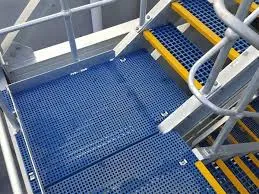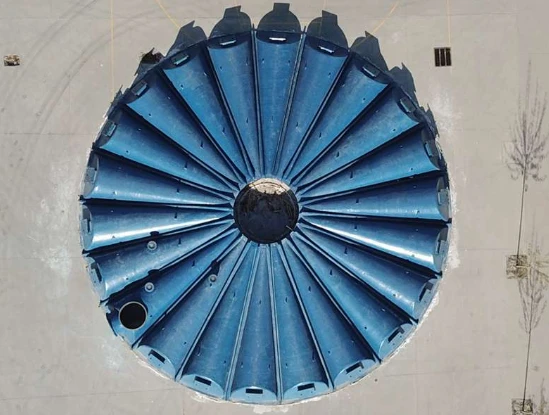
-
 Afrikaans
Afrikaans -
 Albanian
Albanian -
 Amharic
Amharic -
 Arabic
Arabic -
 Armenian
Armenian -
 Azerbaijani
Azerbaijani -
 Basque
Basque -
 Belarusian
Belarusian -
 Bengali
Bengali -
 Bosnian
Bosnian -
 Bulgarian
Bulgarian -
 Catalan
Catalan -
 Cebuano
Cebuano -
 China
China -
 China (Taiwan)
China (Taiwan) -
 Corsican
Corsican -
 Croatian
Croatian -
 Czech
Czech -
 Danish
Danish -
 Dutch
Dutch -
 English
English -
 Esperanto
Esperanto -
 Estonian
Estonian -
 Finnish
Finnish -
 French
French -
 Frisian
Frisian -
 Galician
Galician -
 Georgian
Georgian -
 German
German -
 Greek
Greek -
 Gujarati
Gujarati -
 Haitian Creole
Haitian Creole -
 hausa
hausa -
 hawaiian
hawaiian -
 Hebrew
Hebrew -
 Hindi
Hindi -
 Miao
Miao -
 Hungarian
Hungarian -
 Icelandic
Icelandic -
 igbo
igbo -
 Indonesian
Indonesian -
 irish
irish -
 Italian
Italian -
 Japanese
Japanese -
 Javanese
Javanese -
 Kannada
Kannada -
 kazakh
kazakh -
 Khmer
Khmer -
 Rwandese
Rwandese -
 Korean
Korean -
 Kurdish
Kurdish -
 Kyrgyz
Kyrgyz -
 Lao
Lao -
 Latin
Latin -
 Latvian
Latvian -
 Lithuanian
Lithuanian -
 Luxembourgish
Luxembourgish -
 Macedonian
Macedonian -
 Malgashi
Malgashi -
 Malay
Malay -
 Malayalam
Malayalam -
 Maltese
Maltese -
 Maori
Maori -
 Marathi
Marathi -
 Mongolian
Mongolian -
 Myanmar
Myanmar -
 Nepali
Nepali -
 Norwegian
Norwegian -
 Norwegian
Norwegian -
 Occitan
Occitan -
 Pashto
Pashto -
 Persian
Persian -
 Polish
Polish -
 Portuguese
Portuguese -
 Punjabi
Punjabi -
 Romanian
Romanian -
 Russian
Russian -
 Samoan
Samoan -
 Scottish Gaelic
Scottish Gaelic -
 Serbian
Serbian -
 Sesotho
Sesotho -
 Shona
Shona -
 Sindhi
Sindhi -
 Sinhala
Sinhala -
 Slovak
Slovak -
 Slovenian
Slovenian -
 Somali
Somali -
 Spanish
Spanish -
 Sundanese
Sundanese -
 Swahili
Swahili -
 Swedish
Swedish -
 Tagalog
Tagalog -
 Tajik
Tajik -
 Tamil
Tamil -
 Tatar
Tatar -
 Telugu
Telugu -
 Thai
Thai -
 Turkish
Turkish -
 Turkmen
Turkmen -
 Ukrainian
Ukrainian -
 Urdu
Urdu -
 Uighur
Uighur -
 Uzbek
Uzbek -
 Vietnamese
Vietnamese -
 Welsh
Welsh -
 Bantu
Bantu -
 Yiddish
Yiddish -
 Yoruba
Yoruba -
 Zulu
Zulu
Feb . 18, 2025 09:48
Back to list
Gratings & Covers
In the ever-evolving world of HVAC systems, the materials chosen for ductwork can significantly impact performance, efficiency, and longevity. Among these materials, fiberglass ducts have proven to be a standout, particularly valued for their exceptional resistance against a variety of challenges prevalent in both residential and commercial applications.
In terms of hygiene, the smooth finish and moisture resistance of fiberglass ducts prevent the accumulation of dust, mold, and other allergens. In HVAC systems, this cleanability is vital to ensure air quality, particularly in sensitive areas such as in hospitals or food production facilities. The reduction in potential allergen build-up contributes to healthier indoor air quality and meets the high standards required in hygiene-sensitive industries. Installation flexibility offers another favorable attribute of fiberglass ducts. Due to their lightweight nature, fiberglass ducts are easier to install than many traditional materials. This reduces the labor costs associated with installation and maintenance, as well as decreases the time it takes to complete ductwork projects. Additionally, the versatility of fiberglass duct systems allows them to be easily customized to fit unique architectural requirements, offering a tailored solution without sacrificing integrity or performance. Economically, the cost benefits of fiberglass ducts become evident over time. While initial investment might be higher compared to standard metal ducts, the durability and reduced maintenance requirements render fiberglass a cost-effective solution for facility operators and homeowners alike. When factoring in the energy savings, longevity, and low maintenance, it's clear that fiberglass ducts offer a higher return on investment. Given these compelling advantages, fiberglass ducts are increasingly being specified by HVAC engineers and consultants who prioritize reliability, safety, and environmental performance. Their adoption is further bolstered by emerging technologies in manufacturing processes, which continue to enhance fiberglass duct attributes, expanding their applications across a wider range of industrial, commercial, and residential needs. In summary, fiberglass ducts stand as a superior choice in ductwork materials, offering unmatched resistance against corrosion, environmental elements, fire, noise, and inefficiency. For stakeholders looking to optimize their HVAC systems in terms of durability, safety, and performance, embracing fiberglass ducts represents an informed decision reflective of both expertise and forward-thinking in sustainable building practices.


In terms of hygiene, the smooth finish and moisture resistance of fiberglass ducts prevent the accumulation of dust, mold, and other allergens. In HVAC systems, this cleanability is vital to ensure air quality, particularly in sensitive areas such as in hospitals or food production facilities. The reduction in potential allergen build-up contributes to healthier indoor air quality and meets the high standards required in hygiene-sensitive industries. Installation flexibility offers another favorable attribute of fiberglass ducts. Due to their lightweight nature, fiberglass ducts are easier to install than many traditional materials. This reduces the labor costs associated with installation and maintenance, as well as decreases the time it takes to complete ductwork projects. Additionally, the versatility of fiberglass duct systems allows them to be easily customized to fit unique architectural requirements, offering a tailored solution without sacrificing integrity or performance. Economically, the cost benefits of fiberglass ducts become evident over time. While initial investment might be higher compared to standard metal ducts, the durability and reduced maintenance requirements render fiberglass a cost-effective solution for facility operators and homeowners alike. When factoring in the energy savings, longevity, and low maintenance, it's clear that fiberglass ducts offer a higher return on investment. Given these compelling advantages, fiberglass ducts are increasingly being specified by HVAC engineers and consultants who prioritize reliability, safety, and environmental performance. Their adoption is further bolstered by emerging technologies in manufacturing processes, which continue to enhance fiberglass duct attributes, expanding their applications across a wider range of industrial, commercial, and residential needs. In summary, fiberglass ducts stand as a superior choice in ductwork materials, offering unmatched resistance against corrosion, environmental elements, fire, noise, and inefficiency. For stakeholders looking to optimize their HVAC systems in terms of durability, safety, and performance, embracing fiberglass ducts represents an informed decision reflective of both expertise and forward-thinking in sustainable building practices.
Next:
Related Products









